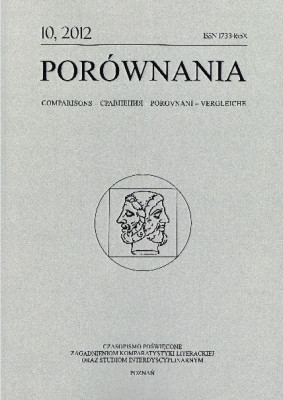Antipodes of History? „Muza Dalekich Podróży” by Teodor Parnicki and „Lód” by Jacek Dukaj as Two Different Models of Approaching Alternative History
The paper is focused to comparative analysis of the novels Muza dalekich podróży by Teodor Parnicki (“A Muse of Distant Journeys”) and Lód(“The Ice”) by Jacek Dukaj. The author compares the artistic techniques as well as the historiosophical consciousness and the awareness of the historical process in the aforementioned novels. The two writers belong to different cul-tural and literary generations and employed differentpoetics, still, it is possible to compare the
historiosophical and methodological aspects of their works and their ways of thinking about
Polishness and cultural myths. The two novels may be treated as realizations of the alternate
history genre. Muza dalekich podróży called by the author himself a “historical-fantastical novel”,
includes a part entitled “It could have been like that” („Mogło być właśnie tak”) describing the
rebirth of Poland after a successful November Uprising. In Jacek Dukaj’s science-fiction novel
history “froze” in 1908. Poland still remains divided in the years 1924–1930, never freed after the Partitions. For both Parnicki and Dukaj, creatingalternative versions of Polish history was the
way to criticizing the model of writing “to uplift hearts” introduced by Henryk Sienkiewicz.
Their attitude towards the methodology of history is worth deeper analysis. Parnicki, who lost
his enthusiasm towards the 19th century type of history á la Ranke, rejected the idea of historical
truth preserved in historical sources. Dukaj, onthe contrary, created a postmodernist methodology of history out of the paradigms of the 19th century historiosophy, thus undermining the status of the historical knowledge as “science”.
| Article Title | Type | Size |
|---|---|---|
| Natalia Lemann Podobni niepodobni.. | [pdf] | [249 KB] |
